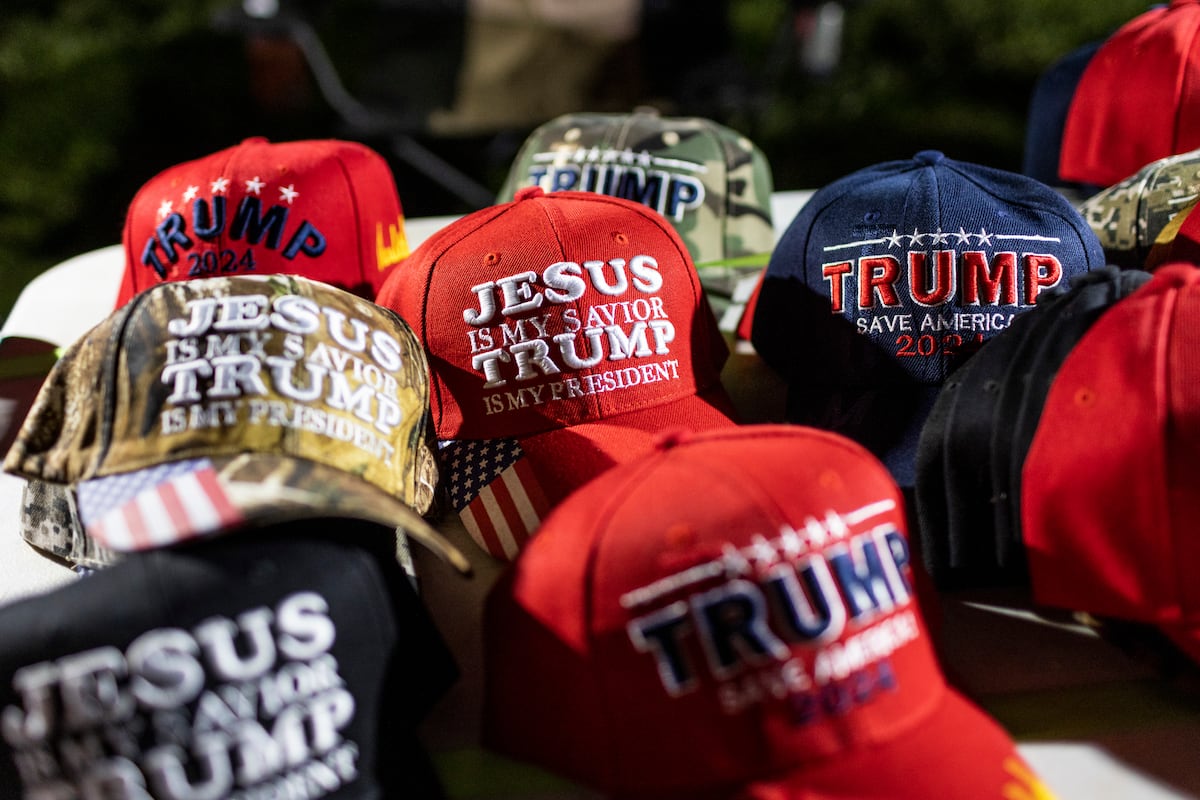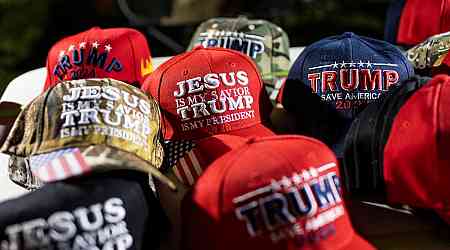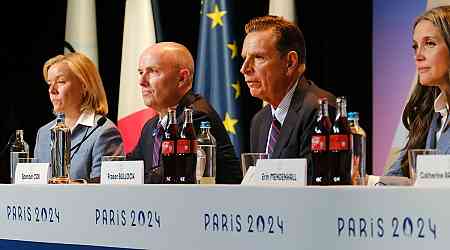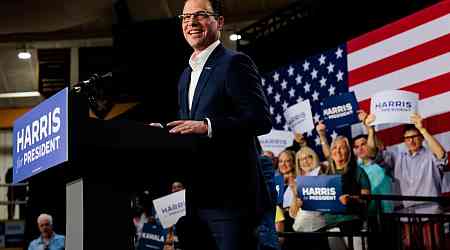In the aftermath of the attempted assassination of Donald Trump on July 13, a video with images of Jesus crowned with thorns, blood running down his face, followed by photos of the former president circulated on social media. Days later, at the Republican National Convention, the evangelist Franklin Graham endorsed Mr. Trump from the stage, saying that “God spared his life.”
But the idea of Mr. Trump as chosen by God has infuriated those evangelicals who believe that he stands in direct opposition to their faith. Their existence highlights an often-overlooked fact about the American religious landscape: Evangelicals are not a monolith.
The troubling ascendancy of white Christian nationalism has galvanized evangelicals for whom following Jesus demands speaking truth to power, as well as building the kingdom of heaven on earth in actionable ways. In 2024, this includes mobilizing voters against the former president.
Although this broader evangelical movement is often referred to as the evangelical left, it adheres to no party. “This isn’t about being a Democrat or a Republican,” Jim Wallis, an evangelical Christian pastor, author and justice activist, told me. Instead believers like him say they refuse worldly labels and division.
They also believe that they can sway enough of their fellow evangelicals, along with other people of faith, and low-income Americans, who historically have had much lower voting rates than other groups, to swing this presidential election against Mr. Trump.
“The so-called evangelicals who support Trump have a Jesus problem,” Bishop William Barber II told me. Jesus advocated tirelessly for the poor and warned that nations would be judged “by how we treat the hungry, the sick, the incarcerated and the immigrant,” Bishop Barber said.
To fulfill Jesus’ mandate to minister to “the least of these,” he is leading a revival of the Poor People’s Campaign, which the Rev. Dr. Martin Luther King Jr. founded in the late 1960s and Bishop Barber restarted in 2018: a national multiracial coalition of Americans working to address the challenges of those struggling to make ends meet.
Historically, poorer Americans have had much lower voting rates than other groups. The Poor People’s Campaign is mobilizing an estimated 15 million voters to cast ballots for candidates who address issues they care about, which has less to do with who uses what bathroom and more to do with a living wage and universal health care.
“Poor people are the new swing voters,” Bishop Barber said. “And every real evangelical knows that the first issue that Jesus talked about was poverty.” Bishop Barber called out the failures of the federal government and politicians who write “oppressive decrees,” ignore the needy and rob the poor.
To organize Christian voters against Trumpism, Doug Pagitt, an evangelical pastor, founded the nonprofit Vote Common Good, which aims to engage Christian voters. He’s driving across the country in a bus to swing states to rally these voters against Mr. Trump.
“We’re specifically targeting those who want to detach their voting habits from the MAGA movement,” Mr. Pagitt told me. It seemed to work in 2020, he noted, citing heavily white evangelical West Michigan, where Mr. Trump’s support dropped to 62 percent from 80 percent in two critical counties, delivering Democrats their win.
Evangelicals like these hew more closely to the original identity of evangelicals in America, which emerged from the Great Awakenings of the 18th and 19th centuries, during which many Christians committed themselves to personal piety and a duty to address the ills of the world, as Jesus called his followers to do. Among other things, they campaigned for the abolition of slavery, ministered to the poor and aided immigrants — all informed by their reading of Scripture.
This strain of Christianity is closer to the mainline Protestant tradition that I grew up in, which saw the Bible as poetry, metaphor and history. I was not brought up to read Scripture literally, as many evangelicals do. As an adult, I am not a regular churchgoer. Yet I find that the convictions of these ardent evangelicals who stand against Mr. Trump — even as a vast majority of white evangelicals have rallied to him — cast a rare and hopeful vision of America’s moral heart.
“We refuse to cede Scripture to the right,” Jonah Overton, a 37-year-old pastor from Milwaukee, told me.
Instead of casting Mr. Trump as a holy martyr, these Christians offer an alternative vision of him as an Antichrist, who abuses his power and in many ways resembles the emperors of Rome. (The Antichrist is sometimes likened to Nero, who persecuted Christians and sometimes crucified them.)
These other evangelicals also commit to following word for word Jesus’ moral teachings in the Sermon on the Mount, in which he commands people to “give to the needy,” as well as “love your enemies, and pray for those who persecute you,” among other practical but difficult tasks. This provides a blueprint for the Christian ethic. “There is no following Jesus without following his teachings on helping the poor and oppressed,” Lisa Sharon Harper, an evangelical theologian, told me.
Some American evangelicals justify Mr. Trump’s decidedly unchristian acts like cheating on his wife with a porn star, in service of advancing abortion restrictions. But adherents’ beliefs about how to follow Jesus’ teachings vary. And evangelicals who have found the weaponization of Scripture distasteful are showing us that their vote is very much up for grabs.
These evangelicals, who’ve long stood at the edge of their tradition, are eager to show fellow believers an authentically biblical way to oppose Mr. Trump. It remains to be seen whether the Democratic Party is willing to take these believers, who are also persuadable voters, seriously.
Eliza Griswold is the director of the Humanities Council’s Program in Journalism at Princeton University. She is the author, most recently, of “Circle of Hope: A Reckoning with Love, Power, and Justice in an American Church.” This article originally appeared in The New York Times.
function onSignUp() { const token = grecaptcha.getResponse(); if (!token) { alert("Please verify the reCAPTCHA!"); } else { axios .post( "https://8c0ug47jei.execute-api.us-east-1.amazonaws.com/dev/newsletter/checkCaptcha", { token, env: "PROD", } ) .then(({ data: { message } }) => { console.log(message); if (message === "Human






























